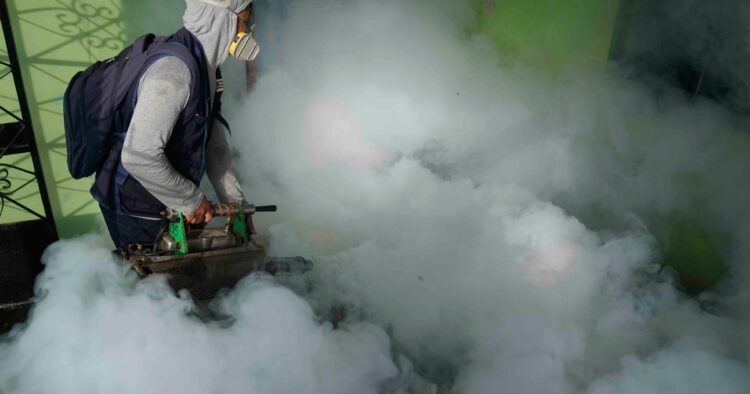The World Health Organization (WHO) has given the green light to a new dengue vaccine, offering hope in the fight against the mosquito-borne disease. This authorization marks a significant step in safeguarding millions worldwide from the escalating threat of dengue outbreaks, particularly in regions such as the Americas, where the disease has surged this year.
In a statement, WHO announced the approval of the dengue vaccine developed by the Japanese pharmaceutical company Takeda. Known as Qdenga, the vaccine is recommended for children aged six to 16 residing in areas with high dengue prevalence. Notably, it provides protection against all four types of the dengue virus.
Takeda’s vaccine, which received approval from the European Medicines Agency in 2022, has shown promising efficacy in clinical studies.
Research indicates that the two-dose vaccine is about 84% effective in preventing hospitalizations due to dengue and approximately 61% effective in reducing symptoms associated with the disease.
ALSO READ: “Wider Alert Expected: WHO Signals Concern Over Contaminated J&J Cough Syrup”
Rogerio Gaspar, WHO’s director for the approvals of medicines and vaccines, emphasized the significance of expanding access to dengue vaccines globally. This approval marks the second immunization endorsed by WHO for dengue, following the initial approval of a vaccine manufactured by Sanofi Pasteur.
Concerns surrounding the Sanofi Pasteur vaccine, which was found to increase the risk of severe dengue in individuals without prior exposure to the virus, underscore the importance of rigorous testing and evaluation in vaccine development.
Dengue, a major public health concern affecting approximately 120 countries across Latin America and Asia, poses a significant challenge due to the absence of specific treatments. While the majority of dengue infections are mild, severe cases can result in life-threatening complications such as internal bleeding, organ failure, and death.
Recent data from WHO revealed a staggering increase in suspected dengue cases in the Americas, with a 206% rise compared to the same period last year. Authorities in regions like Rio de Janeiro have declared public health emergencies in response to dengue epidemics, highlighting the urgent need for effective prevention strategies.
The rollout of the Takeda vaccine in countries grappling with dengue outbreaks, such as Brazil, signifies a proactive approach to containing the disease’s spread.
ALSO READ: “Early Warnings: Covishield’s Health Risks Raised Prior to AstraZeneca Admission”
Efforts to combat dengue are further complicated by factors such as climate change and the expanding habitat of mosquitoes carrying the virus, which have contributed to a tenfold increase in dengue cases over the past generation.
As the global community grapples with the challenges posed by infectious diseases like dengue, WHO’s authorization of the Takeda vaccine offers a glimmer of hope in the ongoing battle to protect vulnerable populations and mitigate the impact of outbreaks.

















Comments